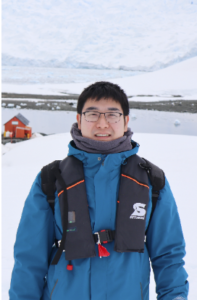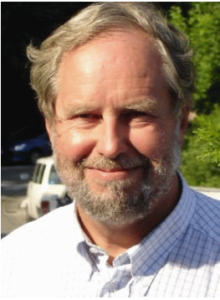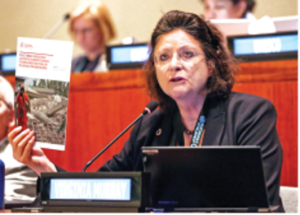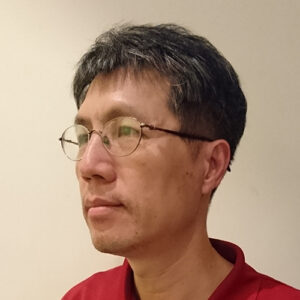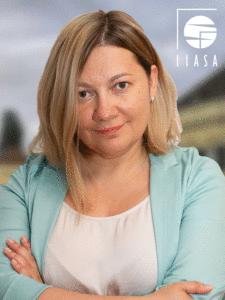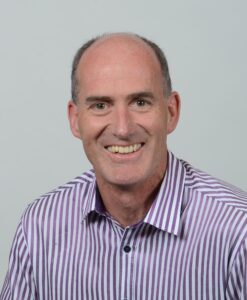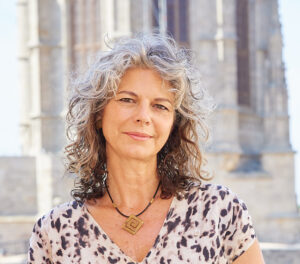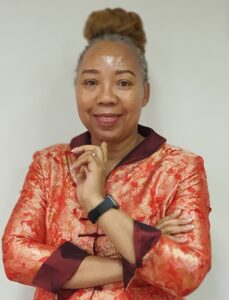 This is the fifteenth in the series of short statements from candidates in the coming CODATA Elections at the General Assembly to be held on 27-28 October 2023. Daisy Selematsela is a candidate for the role of CODATA Vice-President or Executive Committee Ordinary Member. She was nominated by South Africa.
This is the fifteenth in the series of short statements from candidates in the coming CODATA Elections at the General Assembly to be held on 27-28 October 2023. Daisy Selematsela is a candidate for the role of CODATA Vice-President or Executive Committee Ordinary Member. She was nominated by South Africa.
CODATA Executive member candidacy 2023 – 2025
Daisy contributed to the former ICSU (International Council for Scientific Union); ICSU Regional Office for Africa and CODATA on a number of forums since 2007, contributed to position papers, coordinated workshops, chaired conference sessions and made numerous local and international presentations on areas related to ICSU and CODATA objectives. She has served CODATA in the following areas:
Data Science Journal Review – corresponding Editor 2009
Executive member of International Council for Science Union (ICSU SCID) ad Hoc Committee on Information and Data in 2007.Executive member of (ICSU EDC Panel) International Science Union World Data Centre Panel 2008.
Served as ex-officio member of the South African National Committee for CODATA for 11 years that hosted the 2010 CODATA General Assembly in Cape Town.
Chair of International Council for Science: Committee on Data for Science & Technology (ICSU: CODATA) Task Group on Data Sources for Sustainable Development in SADC 2007 -2011.
Contributed to the prototype proposal, development and hosting of the World Data Centre on Biodiversity and Human Health through SAEON (South African Earth Observation Network);
Member of CODATA Task Group on Preservation of and Access to Scientific and Technical Data in/for/with Developing Countries. Co-chairs: CODATA – WDS joint subgroup until 2021.
Daisy served as the Chairperson of South African National Committee for CODATA 2021 -2023 and CODATA Executive Board as ordinary member.
Daisy serves on a number of scientific bodies and a as an editorial board member of a number of journals and the Global Change Research Data Publishing and Repository and a reviewer of several programs.
She serves on a number of national boards and Advisory Councils. Internationally she is a former Board member of Confederation of Open Access Repositories (COAR) and Board of Directors of ORCID (represent EMEA – East Asia, Middle East and Africa) and Research4Life.
She was part of the Founding and Executive Members of the International Data Forum (IDF) 2007-2010. Instrumental in the drafting NRF (National Research Foundation) Statement on Open Access for grant funding; Statement on ORCID ID and Predatory Publishing.
She holds a PhD in Information Science and is also Professor of Practice of Information and Knowledge Management of the University of Johannesburg.; a Fellow of the Higher Education Resource Service for Women in Higher Education (HERS) South Africa and Bryn Mawr College in Philadelphia, USA. Acknowledged with the Knowledge Management Award in 2016 by the World Education Congress.
The global South requires a voice to champion the positioning of open science and open data challenges and cement CODATA Decadal program in the region. The ISC Open Access project known as ‘Opening the record of science’ which is based on the premise that science is a public good and that the bulk of research is produced using public resources speaks to scholarship challenges in the south. The global South is disadvantaged in accessing free to read publications and the ISC 8 principles explores the role of publishing in the scientific enterprise to optimise the access and benefits of science to wider audiences globally which embraces the narrative of social justice as it applies to the global south. Social justice in this context of open science and open data relates to the information society narrative, and how restriction of access to knowledge led to marginalisation and exclusion. As a librarian and information specialist we encounter researchers and emerging researchers who requires guidance and understanding of the open science and open data processes as part of their research lifecycle as the policies and repositories are developed and hosted in academic and research libraries. The issues of data literacy is core to the training of researchers and students wherein the CODATA Data Schools play a role in raising awareness and understanding of data science. My role at the CODATA level will be instrumental in championing global synergies with the National Committees.

